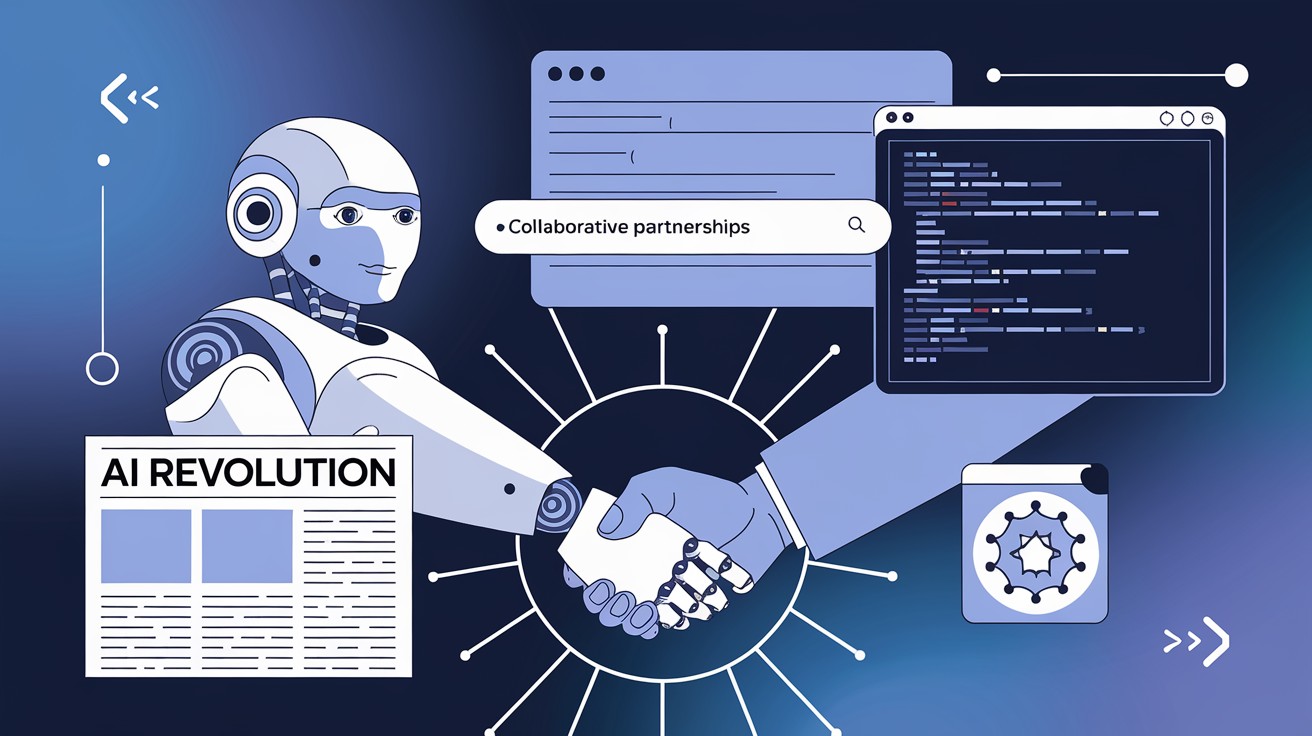Generative AI startup Perplexity wants to collaborate with media outlets on their content, despite recent complaints. Its CEO wants to find a win-win model inspired by Spotify, but will he be able to convince the press giants?
Generative artificial intelligence is disrupting many sectors, and the media is no exception. Perplexity, a young American start-up in this field, is learning the hard way that collaborating with press giants is not easy. However, its founder does not lose hope and wishes to establish win-win commercial partnerships.
Perplexity in the media viewfinder
Aravind Srinivas, CEO of Perplexity, said he was “very surprised” by these complaints during a tech conference. According to him, his company wanted to establish a dialogue with the media concerned to find common ground. Obviously, the current has not yet passed between the two parties.
Medium-term profitability ambitions
Launched at the end of 2022 with the support of Jeff Bezos, founder of Amazon, Perplexity uses generative AI to offer a conversational assistant and a new generation search engine. If it is not yet profitable, the platform aims to break even within 3 to 5 years according to its manager. A horizon that seems distant in the world of start-ups, but Perplexity can count on rapid growth, going from 500 million requests in 2023 to 350 million in September alone.
Finding the right business model
To generate revenue, Perplexity plans to rely on advertising, like Google. But Aravind Srinivas assures that he wants to return part of the advertising revenue to content publishers, drawing inspiration from Spotify’s model with the music industry. An outstretched hand that remains to be realized.
I would rather find a model that we can grow with together, in which our financial success rewards (the content producers), than try to solve my only problem by buying the rights to this content and moving on.
Aravind Srinivas, PDG de Perplexity
The manager therefore seems to favor a long-term partnership approach with the media, rather than a one-off purchase of rights. But the precise terms of such a collaboration remain to be defined, and must respond to the legitimate concerns of publishers about the use of their content.
The difficult equation of intellectual property
Beyond media, many creative professions are wondering how to protect their intellectual property in the face of the rise of generative AI, from visual artists to writers. If safeguards are starting to emerge, such as the obligation to mention the use of AI in images, the legal and ethical framework is still largely to be constructed in this area.
What place for AI in the media?
Beyond questions of intellectual property, the emergence of generative AI in the media sphere raises questions about the future of the profession of journalist. Can tools like Perplexity really produce reliable, quality information? Or do they, on the contrary, risk propagating approximations and biases on a large scale?
For Aravind Srinivas, the success of Perplexity is inseparable from a “thriving ecosystem for quality journalism”. In other words, generative AI would need solid media to flourish without drift. It remains to be seen what place human journalists will have in this equation.
Towards media “augmented” by AI?
Rather than an AI that would replace journalists, some foresee “augmented” media where artificial intelligence would relieve editorial staff of tedious tasks to allow them to devote themselves to the heart of their profession. For example :
- Automatic comment moderation
- Personalization of the user experience
- The generation of “convenience” content (summaries, weather, etc.)
- Interest-based article recommendations
- Detecting emerging topics from data
But for this complementarity between AI and journalists to bear fruit, their economic interests must be aligned. This is what is at stake in the discussions taking place between players like Perplexity and press publishers. The future will tell whether they manage to agree on a new model for creating and disseminating information in the age of artificial intelligence.


